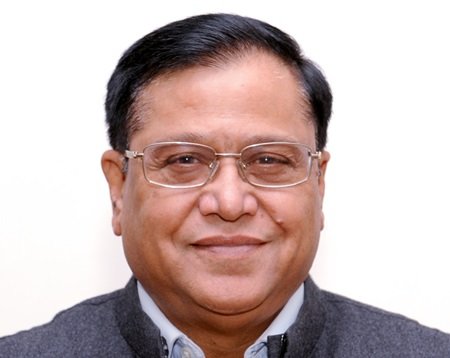Compressed BioGas: New Hope for Energy Independence
By Santanu Gupta, Executive Director (Alternate Energy), Indian Oil Corporation
The global bioenergy landscape is evolving rapidly, with countries around the world recognising its potential to address climate change, enhance energy security, and promote sustainable development. India, with its abundant biomass resources and growing energy demand, is uniquely positioned to lead in the bioenergy sector, particularly in the production and utilisation of Compressed Biogas (CBG). Let’s delve deep as to how CBG can be a new hope for energy independence for India.
The Prime Minister of India along with the leaders of Singapore, Bangladesh, Italy, USA, Brazil, Argentina, Mauritius and UAE, launched the Global Biofuel Alliance (GBA) on September 9, 2023, on the side-lines of the G20 Summit in New Delhi. As of date, 24 countries and 12 international organisations have joined the GBA. GBA will support worldwide development and deployment of sustainable biofuels. There are already worldwide interactions on Biofuels through GBA.
The Government of India has put several policies in place to boost bioenergy. The National Policy on Biofuels – 2018 (NPB) which was amended in 2022 is a major step towards development of a sustainable biofuels ecosystem across the country. The policy categorises biofuels as “Basic Biofuels” namely First Generation (1G) bioethanol & biodiesel and “Advanced Biofuels” – Second Generation (2G) ethanol, Municipal Solid Waste (MSW) to drop-in fuels, Third Generation (3G) biofuels, Compressed Biogas (CBG). NPB has set a target of 20 per cent ethanol blending in petrol by 2025-26. As per the “Roadmap for Ethanol Blending in India 2020-25”, the estimated requirement for 20 per cent ethanol blending in Ethanol Supply Year (ESY) 2025-26 is approximately 1016 crore litres and this quantity of petrol will be replaced by ethanol. As per the Roadmap, a successful E20 programme can save the country about $4 billion per annum. Similarly, a target of 5 per cent blending of biodiesel in diesel has been considered under NPB by 2030.
India is focusing on biogas and CBG as part of its strategy to diversify its energy mix. Derived from the anaerobic digestion of organic waste, such as agricultural residues, cattle dung, and municipal solid waste, CBG is purified and compressed to be used as a vehicular fuel, industrial fuel, commercial fuel or injected into the natural gas grid.
CBG offers numerous benefits to our country and the environment. Production of CBG will assist in increasing the green energy mix, reduce import dependence, create employment especially in rural areas and reduce pollution due to crop burning. This will largely create value and employment in the rural economy across the supply chain from biomass collection to plant operation. CBG contributes to cleaner air and better public health compared to conventional fossil fuels. Production of CBG is also in alignment with Centre’s programmes of Climate Change mitigation, import reduction, energy security through replacement of fossil fuel, “Atmanirbhar Bharat”, “Make in India”, “Swachh Bharat Mission” and creating a circular economy.
The Sustainable Alternative Towards Affordable Transportation (SATAT) initiative, launched in 2018, is a key government programme aimed at promoting CBG production and its use as a vehicular fuel. This initiative aligns with India’s broader goals of reducing carbon emissions, improving air quality, and enhancing energy security.
To read more click: https://agrospectrumasia.com/e-magazine
By Santanu Gupta, Executive Director (Alternate Energy),




